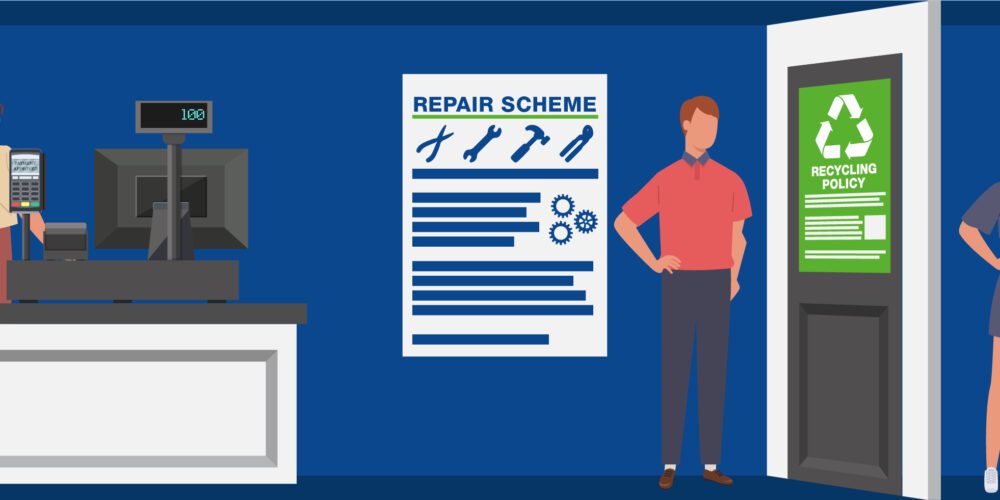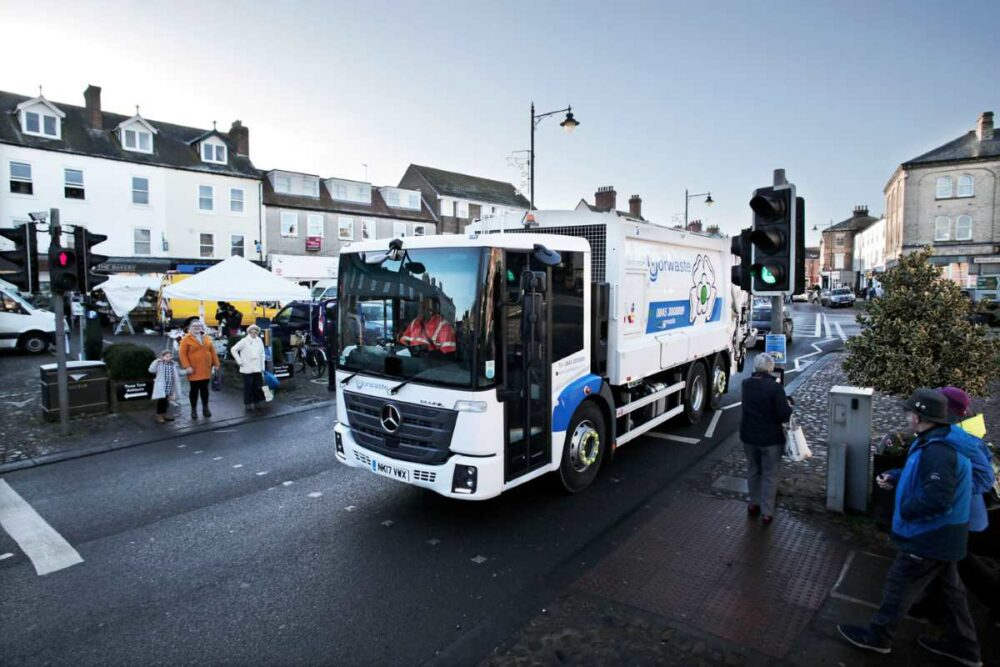10 Ways to Manage Commercial Waste in Retail

Looking to reduce waste in the retail sector? We have you covered.
When it comes to retail waste, packaging is one of the main culprits, ranging from cardboard to single-use plastics. That goes without mentioning things like food waste too, both from stock and from the staffroom. It may feel like an overwhelming task, with multiple areas to tackle, but these simple steps will help point you in the right direction.
Managing Your Retail Waste
- Internal audit
The first logical step is to complete an internal audit. Dedicate a set period of time to observe how your business generates waste on a day-to-day basis and whether there are any helpful switches you can make. This includes monitoring personal and business settings such as staff rooms and stock rooms, spanning different types of waste, from cardboard to food waste.
- Create a recycling policy
Once you’ve completed your internal audit, it’s time to make an action plan. Ask yourself how you want to make changes in your business practices to minimise waste going forward. For example, can you switch to compostable or recyclable options when it comes to packaging?
To keep yourselves accountable, it’s always good to share your recycling policy and actions with customers, both online and in-store.
- View this as an opportunity to cut costs
The entire premise of reducing waste often comes hand in hand with reducing costs. If you view retail waste reduction as a cost-cutting exercise, you’re likely to be pleasantly surprised. This can be the perfect incentive to help you make more efficient changes within your business. The less you use and the more efficient you are, the healthier your total outgoings will look.
- Use the most effective media available to engage with your audience
With ongoing debates about whether paperless is better for the environment than using print resources, it is advised that companies use whatever media they deem most effective for communicating with their audience. One store may opt for flyers that can be recycled, while another may prefer social media.
Being strategic and understanding your target audience can help you be more cost-effective with when it comes to marketing.
- Avoid excess packaging
Retail is a packaging-thirsty industry. An important step in tackling this is to open up a conversation with your supplier and work with them to improve the current situation. The first action should be tailored towards the ‘reduce’ layer in the waste hierarchy, with the removal of any unnecessary packaging.
After this, opting for packaging that is easily recyclable or made from materials that can biodegrade can make all the difference.
- Give any damaged stock a new home
This will depend on the type of retailer you work for, but if it is feasible, you can look into donating unsold items to charity or re-homing them elsewhere. It may be that you set up a long-term partnership with a local charity. You could look into partnering with a children’s charity if you sell toys or a food bank if you sell food or drink for example.
Alternatively, staff discounts are bound to go down a treat in a bid to re-home any leftover stock.
- Encourage sustainable shopping habits in-store
Lead by example – it’s a great mantra and comes in handy when promoting more sustainable habits. There are different ways to approach this, but selling reusable shopping bags instead of providing single-use plastic bags can be one option.
Alternatively, some businesses run a swap and reward system in a bid to be more circular and reduce waste this way.
- Promote upcycling and repair schemes
Again, this depends on the type of retailer you work for, but anything that encourages upcycling or repairing products in order to give them a longer life is a positive thing. Take an old-school camera shop for example – they may buy retro cameras from customers and put that money towards another one in a part-exchange. This increases the life cycle of certain products and can be applied to certain retailers.
Similarly, repair services are a great option for longevity of products.
- Education
This step is key – teamwork makes the dream work after all. Make sure your staff are fully educated on the steps they need to take to help reduce waste in the business on the shop floor, in the stock room and in the staffroom.
You can keep up morale and maintain focus by running internal competitions as an incentive to make sure everyone is actively making an effort, to the point where it’ll soon become second nature.
- Partner with a reliable commercial waste collector
One of the most important steps in your waste action plan is ensuring that it is disposed of correctly and in a way that is as environmentally friendly as possible. Here at Yorwaste, we work with thousands of businesses in North Yorkshire to create tailored waste management plans that suit businesses across a range of sectors, including retail.
Get in touch today to save up to 20% on your business waste collection.

